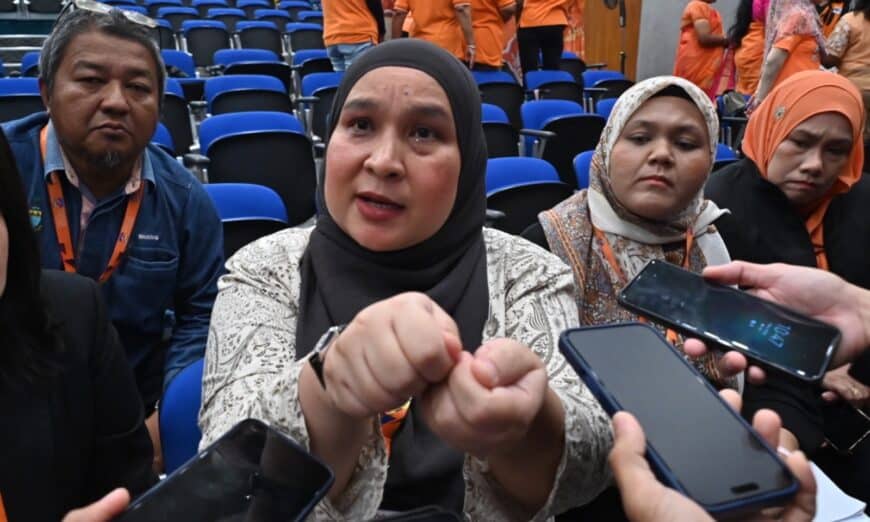PENANG is continuing its efforts to strengthen public awareness on child protection, even as the state recorded 697 child-related cases between January and August this year.
State Social Welfare Department director Rozita Ibrahim said the increase in numbers reflected greater public awareness and willingness to report, rather than an actual surge in child abuse incidents.
“The figures may look high, but they show that awareness among the public has improved,” she told reporters when asked about the surge in recorded child abuse cases after an event in Komtar today.
Rozita noted that more people are now coming forward to report suspected abuse compared to before, when many incidents went unreported.
According to her, the cases were classified under the Child Act 2001 (Act 611), which defines a child as anyone below 18 years old.
Rozita mentioned that the 697 cases recorded in Penang this year involved four main categories: children in need of care and protection, those in need of protection and rehabilitation, children in conflict with the law, and those beyond parental control.
“The first category includes children who are abused, assaulted, exploited or trafficked. The second involves cases of sexual exploitation, such as minors forced into prostitution or who became pregnant.
“Children involved in crimes like theft, robbery or even murder are placed in special schools until they reach 21 years old, since the Act does not allow capital punishment for minors. The last category involves children whose parents can no longer manage them, like those skipping school, involved in illegal racing or mixing with negative influences,” she said.
Rosita said Penang, with a population of about 1.7 million, naturally records a proportion of such cases, but the increase mainly stems from stronger community awareness.
“With 9.2 million children nationwide, such incidents can occur. However, in Penang, the rise is largely due to more reporting and improved community vigilance,” she said.
According to her, reports are made through the Social Welfare Department, the police, and schools.
Rozita explained that the North Seberang Perai District recorded the highest number of cases, due to its rural area and higher population density.
“In rural areas, communities are still learning how to identify and report abuse as not everyone is confident about lodging a police report,” she said, adding that the awareness across Penang is steadily improving.
She said most affected children were aged seven to 12 years, describing this as a fragile and high-risk group transitioning from primary to secondary school.
“Many cases involve neglect under Section 17 of the Child Act,” she said, adding that a child’s welfare encompasses nutrition, health, education and a safe environment.
Rozita also noted that resolving cases takes time, as every child undergoes counselling and continuous monitoring.
“Some cases take one to three years. Victims of incest or sexual assault often require long-term counselling and support,” she said.
Awareness initiatives, she said, are ongoing through campaigns, community outreach, and public education, including promotion of the Talian Kasih hotline (15999) and its WhatsApp line (019-621 1599) for public reporting.
State Social Development, Welfare and Non-Islamic Religious Affairs Committee chairman Lim Siew Khim said the state was committed to strengthening protection mechanisms for children and families in distress.
She said the state Welfare Department, the Health Ministry and police continue to closely monitor reported cases.
“For serious cases, victims have been moved to safer locations,” she said, while others remain under supervision for counselling and follow-up support.
Lim said the state government’s focus was not only on managing existing cases but also on empowering communities to identify warning signs early and act responsibly.
Story by Edmund Lee
Pix by Law Suun Ting

